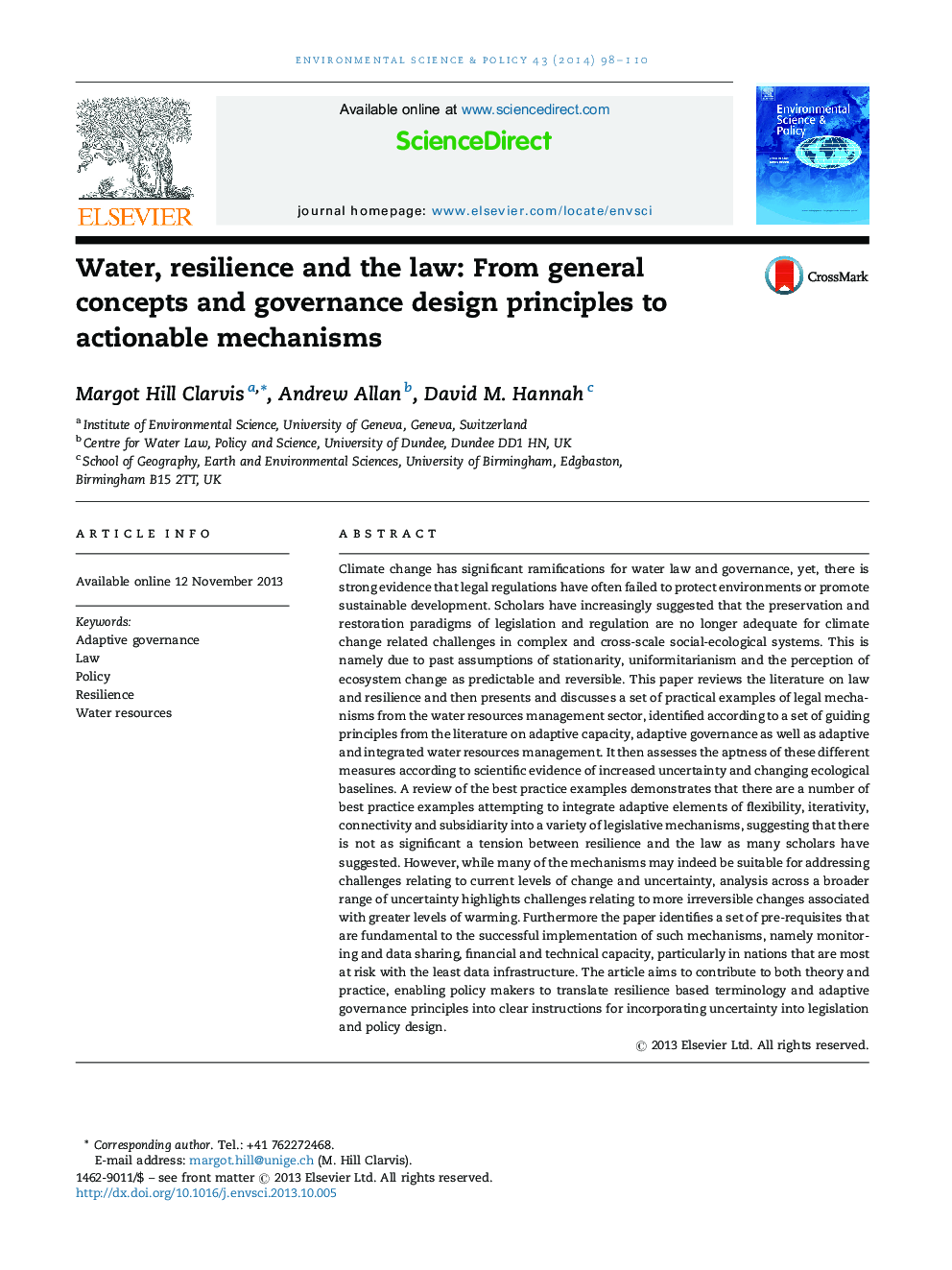| کد مقاله | کد نشریه | سال انتشار | مقاله انگلیسی | نسخه تمام متن |
|---|---|---|---|---|
| 1053552 | 1485063 | 2014 | 13 صفحه PDF | دانلود رایگان |
• Reviews literature on law and resilience, adaptive governance and management.
• Discusses practical examples of legal mechanisms for adaptive water resources management.
• Assesses aptness of different measures according to different levels of uncertainty.
• General design principles are operationalised in legislative frameworks.
• Monitoring, data sharing, financial and technical capacity are pre-requisites.
Climate change has significant ramifications for water law and governance, yet, there is strong evidence that legal regulations have often failed to protect environments or promote sustainable development. Scholars have increasingly suggested that the preservation and restoration paradigms of legislation and regulation are no longer adequate for climate change related challenges in complex and cross-scale social-ecological systems. This is namely due to past assumptions of stationarity, uniformitarianism and the perception of ecosystem change as predictable and reversible. This paper reviews the literature on law and resilience and then presents and discusses a set of practical examples of legal mechanisms from the water resources management sector, identified according to a set of guiding principles from the literature on adaptive capacity, adaptive governance as well as adaptive and integrated water resources management. It then assesses the aptness of these different measures according to scientific evidence of increased uncertainty and changing ecological baselines. A review of the best practice examples demonstrates that there are a number of best practice examples attempting to integrate adaptive elements of flexibility, iterativity, connectivity and subsidiarity into a variety of legislative mechanisms, suggesting that there is not as significant a tension between resilience and the law as many scholars have suggested. However, while many of the mechanisms may indeed be suitable for addressing challenges relating to current levels of change and uncertainty, analysis across a broader range of uncertainty highlights challenges relating to more irreversible changes associated with greater levels of warming. Furthermore the paper identifies a set of pre-requisites that are fundamental to the successful implementation of such mechanisms, namely monitoring and data sharing, financial and technical capacity, particularly in nations that are most at risk with the least data infrastructure. The article aims to contribute to both theory and practice, enabling policy makers to translate resilience based terminology and adaptive governance principles into clear instructions for incorporating uncertainty into legislation and policy design.
Journal: Environmental Science & Policy - Volume 43, November 2014, Pages 98–110
